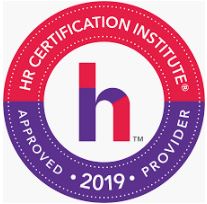2.5-hr Virtual Seminar: The Unthinkable - Violence in Healthcare, from Bullying to an Active Shooter
Duration : 150 Minutes

This course, has been approved for 2.5 HR (General) recertification credit hours toward aPHR™, PHR®, PHRca®, SPHR®, GPHR®, PHRi™ and SPHRi™ recertification through HR Certification Institute® (HRCI®).
Dr. Susan Strauss,
Dr. Susan Strauss is a national and international speaker, trainer, consultant and a recognized expert on workplace and school harassment and bullying. She conducts harassment and bullying investigations and functions as an expert witness in harassment and bullying lawsuits. Her clients are from b Read more
The healthcare environment creates a major challenge in the prevention and intervention of violence. The rate of injuries and illness from violence in the healthcare industry is more than three times greater than violence in all private industry. This training program will explore what makes violence in healthcare unique and its negative ramifications on quality patient care.
Course Objectives:
The healthcare setting is one of the most violent venues in which to work in the U.S. and internationally. Healthcare is unique in that the violence that occurs here has negative ramifications to quality patient care. The Joint Commission has even taken a stand on dealing with unsafe patient care due to abusive (which may constitute violence) behavior by health professionals.
Your role as leaders in your healthcare organization equates to a responsibility to create and sustain a safe working environment for your employees and a safe and healing environment for your patients. This webinar will review the critical elements required to plan, design, develop, implement, and evaluate your healthcare organization’s violence prevention plan.
Are you prepared to deal with an active shooter on one of your patient floors—which happened in a hospital in Minnesota? As we hear more and more about mass shootings, it causes us to pause and wonder if it could really happen in a hospital, clinic, or when visiting a patient’s home. Fortunately, most violence does not rise to that level, but nonetheless, the violence that commonly occurs in healthcare has profound consequences for all involved. It is essential you prepare to prevent and react to minimize the violence that occurs.
Course Outline:
• To define workplace violence
• To provide examples of workplace violence in healthcare
• To discuss the relevant laws that address workplace violence
• To state the impact and consequences of violence to healthcare victims, the organization and patient care
• To examine the clinical, occupational, social, and economic factors of violence in healthcare
• To review 10 de-escalation tips when dealing with an angry individual
• To examine the causes of healthcare violence
• To discuss a violence prevention program to ensure patients, families, visitors, and staff are safe
• To outline the roles and responsibilities of the organization’s stakeholders
• To explain how to help the workplace and workers recover following a violent episode
What You Get:
• Training Materials
• Live Q&A Session with our Expert
• Participation Certificate
• Access to Signup Community (Optional)
• Reward Points
Who Will Benefit:
• Director of Risk Management
• Director of Safety
• Director of Quality Improvement
• Occupational Health Nurse
• VP of Nursing/Chief Nursing Officer
• Legal Counsel
• Chief Medical Officer
• Chief Operations Officer
• HR Managers
• Office Manager
• HR Personnel
Please reach us at 1-888-844-8963 for any further assistance or if you wish to register

